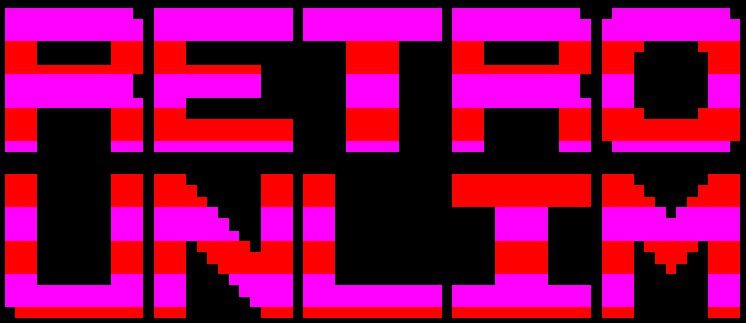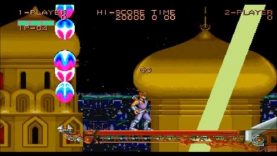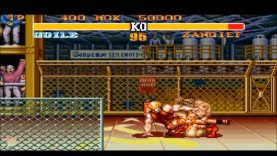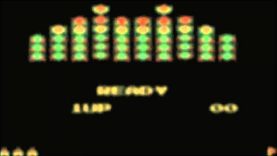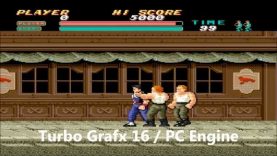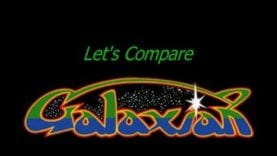Let’s Compare ( Galaxian ) ( Screw EMI Edit )
Gaming History Source
Video Locations
1. Arcade 0:30
2. BBC Micro ( Clone Galaxians ) 1:10
3. Atari 2600 1:52
4. ZX Spectrum 2:33
5. Apple 2 ( by Starcraft ) 3:14
6. Apple 2 ( By Atari ) 3:58
7. Atari 5200 / 400/800/XE/XL 4:39
8. Commodore Vic 20 5:23
9. Bally Astrocade 6:04
10. Commodore 64 6:49
11. Gameboy ( Galaxian / Galaga ) 7:30
12. NEC PC88 8:11
13. MSX 8:52
14. Colecovision 9:34
15. Sharp X1 10:15
16. Gameboy Advance 10:56
17. Nintendo 64 (Namco Museum 64) 11:38
18. Nintendo ( Famicom & Disk System ) 12:22
19. DOS 13:02
20. Coleco Tabletop arcade 13:44
Video Description Source
http://en.wikipedia.org/wiki/Galaxian
Galaxian (ギャラクシアン?) is an arcade game developed by Namco in 1979. It was published by Namco in Japan and was imported to North America by Midway in 1980. A fixed shooter-style game in which the player controls a spaceship at the bottom of the screen and shoots enemies descending in various directions, it was designed to compete with the successful earlier game Space Invaders.
The game was highly popular upon its release, and has been a focus of competitive gaming ever since. It spawned a successful sequel, Galaga, in 1981, and the lesser known Gaplus in 1984, as well as many later ports and adaptations.
Galaxian expanded on the formula pioneered by Space Invaders. As in the earlier game, Galaxian featured a horde of attacking aliens that exchanged shots with the player. In contrast to Space Invaders, Galaxian added an element of drama by having the aliens periodically make kamikaze-like dives at the player’s ship, the Galaxip. The game’s plot consisted of a title screen that displayed the message “WE ARE THE GALAXIANS / MISSION: DESTROY ALIENS”. Galaxian was also an early example of levels and boss encounters, and it was the first game to have all of its graphics in RGB colour.
Gameplay
The gameplay was relatively simple. Swarm after swarm of alien armies attacked the player’s ship that moved left and right at the bottom of the wraparound screen. The ship could only have one shot on screen at a time. The player would defeat one swarm, only to have it replaced by another more aggressive and challenging army in the next screen. A plain and repetitive starfield scrolled in the background.
Galaxian was very successful for Namco and introduced several “firsts”. Although true color (as opposed to a color overlay for a game that was otherwise black and white) began appearing as early as 1975, Galaxian took graphics a step further with multi-colored animated sprites and explosions, a crude theme song, different colored fonts for the score and high score, more prominent background “music” and the scrolling starfield, and graphic icons that showed the number of ships left and how many rounds the player had completed. These elements combined to create a look and feel that would set the standard for many other 1980s arcade games such as Pac-Man.
History
The game was developed by Namco in 1979, and released in Japan that year. It was designed to build and improve upon the formula of Taito’s game Space Invaders, which had revolutionized the gaming industry upon its release a year earlier. Galaxian incorporated new technology into its dedicated arcade system board, the Namco Galaxian. Unlike Space Invaders, which was black and white and featured enemies that could only move vertically and horizontally as they descended, Galaxian had a color screen and enemies that descended in patterns and came from various directions. The result was more complex and difficult game play.
In 1980 Namco partnered with the American company Midway to release the game in North America. Midway had previously published Space Invaders in the market, but had to seek new foreign partners when Taito decided to market their games themselves. Though not nearly as successful as Space Invaders had been, Galaxian became one of the most profitable games of its time. It was a major boost for Namco and Midway, allowing Midway to challenged the dominance of their rivals Atari in North America.

